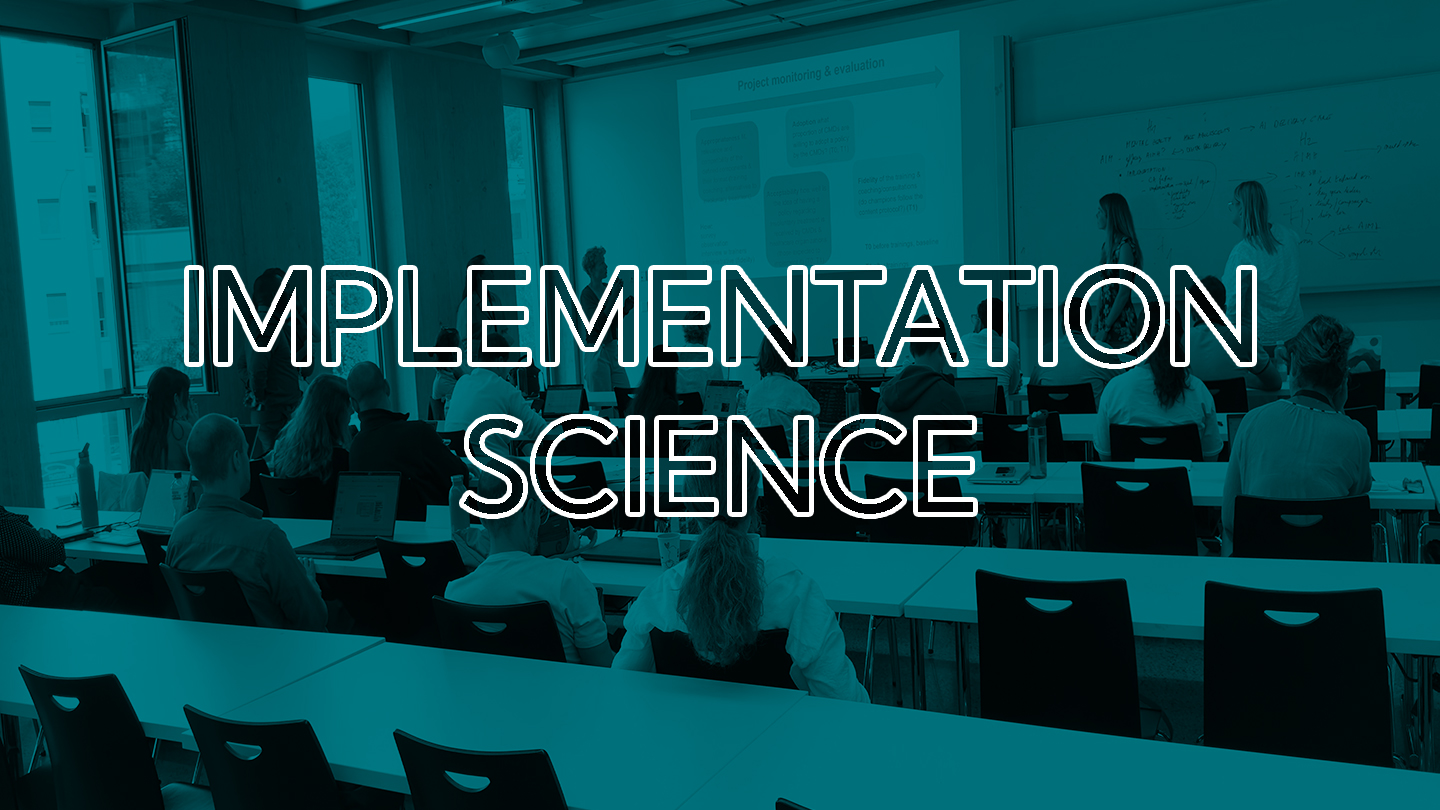Implementation science in healthcare: How to effectively translate evidence based innovations into real-world settings
In this course, participants will gain the knowledge and competencies that enable them to effectively translate evidence-based innovations into their own settings. Participants will learn about case studies and examples from various contexts including high, middle and low resource settings.

Course facilitated by:
About the course
Implementation science is a relatively novel field that builds on clinical research methods and adds specific methodological considerations to support successful translation of innovations into real-world settings. Such innovations include, but are not limited to: programs, practices, principles, procedures, products, pills, and policies. Implementation science is important because only a fraction of research evidence is translated into changes in practice, and it takes about 15 years to achieve such implementation in real-world settings.
In this course, participants will gain the knowledge and competencies that enable them to effectively translate evidence-based innovations into their own settings. Starting from the strength of evidence, patient and public involvement, and a contextual analysis, interventions and implementation strategies will be discussed and developed. The course will address evaluation both from an effectiveness as well as from an implementation process perspective. Participants will learn about case studies and examples from various contexts including high, middle and low resource settings and focus on the application of implementation science.
Learning objectives
By the end of the course participants will:
- Understand different types of research waste and be able to argue the role of implementation science in reducing research waste and enhance effectiveness of the research pipeline;
- Be able to discuss stakeholder involvement in implementation science projects;
- Be able to highlight the role and types of theories, models and frameworks in supporting implementation research;
- Have the capacity to argue the need for contextual analysis in implementation science projects and describe how to perform a contextual analysis;
- Understand the evidence base of implementation strategies;
- Know different types of implementation outcomes and their measurement;
- Be able to recognize and critically evaluate common implementation science study designs (hybrid designs);
- Be able to apply reporting guidelines (e.g., StaRI) for implementation science research studies;
- Be able to apply learned theoretical knowledge in the discussions and learning groups and participate actively in discussions and project works.
Prerequisites
Basic competencies in clinical research methods and statistics.
Pedagogical methods
- Readings;
- Lectures;
- Discussion rounds;
- Project work in learning groups.
Pedagogical methods
Assessment procedure
To get the Certificate of completion and the 1 ECTS participants must:
- Attend at least 80% of the course;
- Attend the plenary(s) offered during the days of the course;
- Actively participate during classes and project work in learning groups;
- Deliver a presentation of project work for each learning group.
Format description
The facilitators plan to be present in Lugano, and the course will be held entirely on-site. If face-to-face meeting was problematic for unforeseen reasons, the course could be held online or using a hybrid format. The course will take place at Università della Svizzera italiana (USI).
For course pricing information, see here. Discounts are available for participants from UMICs, LMICs, PhD and Master Students, and Students and Employees from the LSS Partner Universities (SSPH+, USI, SUPSI, and SWISS TPH).



